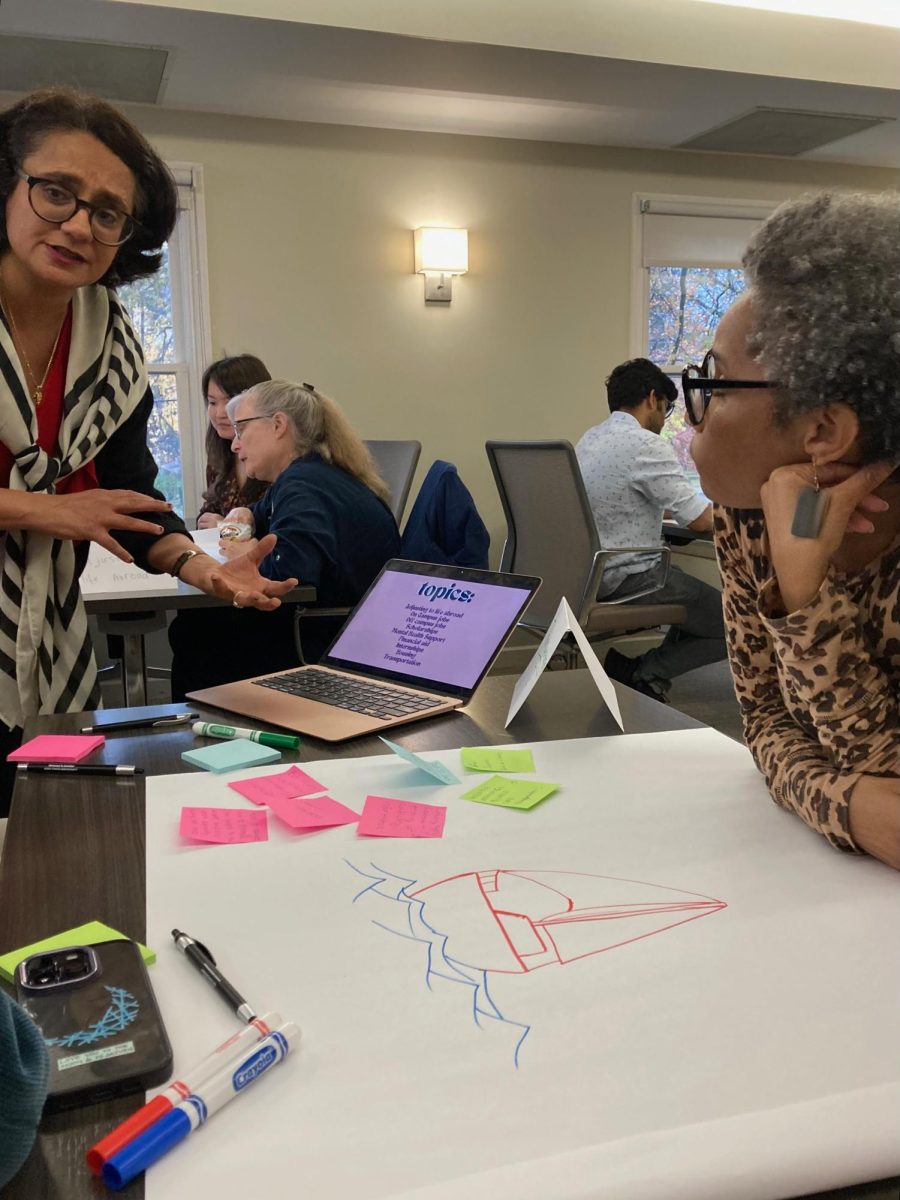The university has begun collecting data on modern college students’ experiences through its new Student Life Study, a one-of-its-kind research initiative.
The study was launched in August 2023 with hopes of recruiting over 10,000 students and following them throughout their lifetimes. This high number of participants is something that researchers working on the study consider an “ambitious” goal, but they still look to reach it.
“It is the largest research project to focus on college student wellness ever conducted in the United States,” according to the study’s about page.
The study is not just focused on student wellness — it is looking to analyze every aspect of undergraduate students’ day-to-day experiences. Be it mental or physical health, social belonging or academic success, the study is honing in on the myriad of things that impact Gen Z college students.
“Our generation is so unique,” project coordinator Julie Schupbach said. “The fact that we have a smartphone on us at all times is completely unprecedented.”
A unique aspect of this program is that it is not time restricted. These researchers are looking to follow a large population of different students attending Kent State, while producing research that can be published at any time.
“Other research that looks into this stuff takes a while to: one, just collect the data, then, you got to write the papers, then it has to get published. By the time that process happens, that information is already outdated because our society is moving so fast,” Schupbach said.
Not only does this study adjust to the new, fast-paced infrastructure of our modern society, it also recognizes that it needs to be more flexible in the way it addresses students.
“The way that it’s designed, we’re able to kind of track these changes and see all this stuff in real time. And we’re going to be able to produce these papers and get it published while we’re still collecting data and brand-new information,” Schupbach said.
The study is fully optional and students get to choose when and which activities they engage in.
“There is no timeline to join or a time frame to finish your tasks or the study activities,” Schupbach said. “All of our tasks are kind of a framework around each semester. So there are some activities, like the in-person sessions that happen here at the DI hub, which we invite participants to complete once an academic year.”
The Student Life Study keeps in mind that students’ lives are filled to the brim with schoolwork, fun, stress and much more, which is exactly why it is so flexible. This feature is due in part to those working on the project who have either experienced the life of a modern college student or have witnessed their struggles.
Schupbach herself graduated from Kent State last spring. She said the pandemic and the rise of social media has played a big role in the way Gen Z has developed, and that she has personally felt the impact of these events on culture.
“Social media creates this whole new context in which we’re operating in, it’s not really understood by scientists,” Schupbach said. “The people that we get our information from don’t understand us, so that’s what we’re setting out to do.”
The researchers in this study are taking advantage of Gen Z’s consistent use of technology.
“A lot of what we do is remote, which is a really cool new way of collecting data,” Schupbach said. “It fits Gen Z and we’re taking advantage of the fact that everyone has a phone on them.”
Most of this study is online, through apps and even email. Only a few tasks require students to be in person, and when they do, they often come with a reward.
For example, at the in-person health study, students will get a chance to receive a gift card and keep a Garmin watch — a health watch that keeps track of your heartbeat, blood oxygen levels, steps and more.
All students must do for this study is wear the watch most of the day for seven days straight and take a couple brief surveys in the morning and night on their day-to-day experiences.
Each activity not only benefits students participating in the study, but those working on the study. It has been created and maintained by researchers, university staff and students who all work together to promote and organize the project.
It is co-directed by psychology professors John Gunstad and Karin Coifman. Both are research experts in wellness and have begun inspiring students to do the same through this program.
Kent State psychology students Alexis Osburn and Izzy Niedermier, research assistants for the Student Life Study, both said they are excited to help.
“It’s been a really great, valuable experience to us. So far, this has really cemented the fact that I want to go to grad school for clinical psychology,” Niedermier said.
“To be a part of changing things is really cool, because I can say hey, ‘I was a part of the Student Life Study,’” Osburn said.
Fliers, posters and QR codes have been scattered across Kent State and its social media platforms in hopes of recruiting main campus students to participate in the study. The program is always looking not only for participants, but also for volunteers to help in the lab. Schupbach said they will be recruiting people for the next year, possibly until the spring of 2025.
Though the study is only currently open to main campus students, they hope to open their doors to those at Kent’s regional campuses soon.
“Our population right now is just undergraduate students at the Kent campus,” Schupbach said. “But hopefully very soon we are opening to regional campuses.”
Elaina Matricardi is a reporter. Contact her at [email protected]








